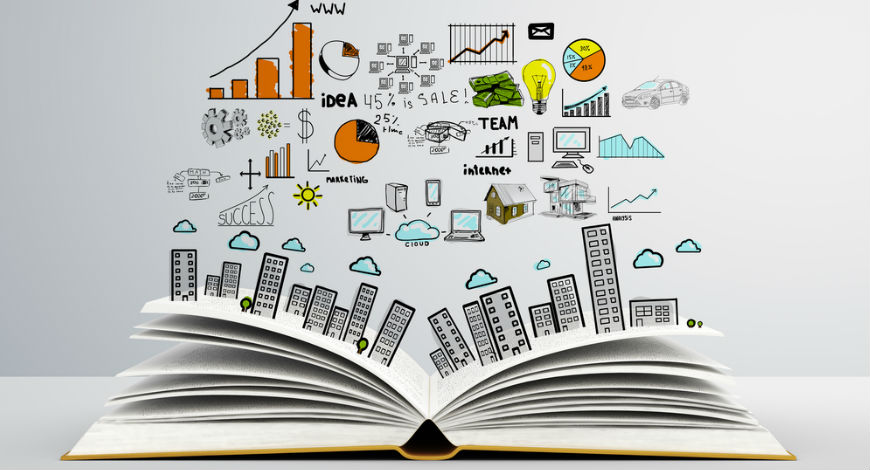
India is a country that is aspirational, young and dynamic. Last 70 years have transformed the country into one of the fastest growing economies with maximum world youth residing and learning, writes Loluck Baby, Career Coach, United Arab Emirates (UAE), for Elets News Network (ENN).

While all the countries who got independence from the British rule struggled to keep the democratic framework alive, India stood out and created the world’s biggest democracy with a well-written constitution. Thanks to our ancestors who envisioned the importance of having such a robust and inclusive constitution to run a country which speaks more than 400 languages, thousands of castes and tens of religion and culture.
Education is our fundamental right. All State and Central Governments have always given high-level of importance to education. Our statement believed that Education is the only tool that can drive the country out of exploitation and poverty. From a country with 19 percent literacy in 1951 to a country with around 75 percent literacy in 2011 (As per Census 2011) is a great achievement, that too with the population of 1.2 billion. Though, we have reasons to blame our successive government for not doing many things, we can also be proud of what we have achieved in the last 70 years.
India has created a massive and robust education system, which ensures gender equality, give preference to the neglected communities and appreciate the talented students. Whether it is NCERT or state boards, despite all the issues and challenges, the organisations worked well to produce quality manpower that has driven the economy forward. One of the major export we have is our talented youth, In the 1980s we considered it as “Brain Drain”. But I consider it as “Brain gain”. In this 21stcentury, we have created a soft power with our Indian youth running all the major corporate houses in the world. All these talents are produced by the Indian Education System.
One of the key organisations in India that has transformed the education sector in villages is Anganwadis. In 1975, after the creation of Integrated Child Development Services (ICDS), the world’s biggest community initiatives, this institution has played the effective role as “Poor Man kindergarten” and nutritious food source for children and mothers in particular.
The vision set by our first prime minister Jawaharlal Nehru and Education minister was the base of our well developed and robust system. Our First Education Minister Maulana Abdul Kalam Azad was a combination of religious scholar and modern science and technology enthusiast who believed in quality education as the way for India to move forward and to be a successful country. In 1951, IIT Kharagpur was established and since thenthe country has developed 23 IITs and 20 IIMs, which became the education hub for developing industry leaders not only in India, around the world.
Growth in the public Education system
In last 70 years, our public education system has grown muchfolds, with the help of government, private and NGO partnerships. In 1951, our school enrolment was less than 40 percent whereas in 2001, we have achieved 100 percent of school enrolment. In 1951, we were having less than 2.4 lakhs primary school whereas in 2018 we have more than 15 lakhs schools. After the introduction of Mid-day meal in 1995, the school dropout has drastically reduced. The role of the NGOs, missionaries, communities and the private sector in developing the general education cannot be neglected. Every successive state and central government supported the contribution in a very active way to accelerate the growth of the nation. When it comes to Universities, from 27 universities in 1951, currently, India has 829 universities and the number is growing fast.
Status of Technical education
India has become a production house of technical graduates. Every year we are producing 1.5 million engineers. We are producing the brightest scholars of the planet from IITs, NITs, AIIMS, IISC and IIMs. Apart from these premier institutions, there are colleges run by State Governments and private institutions, which are producing more than enough technical graduates for the country. India has become a hub of software, because of the quality technical graduates coming out of all these institutions. As part of the National Education Policy of 1986, we started promoting Vocational Education in secondary school, which has created a major industrial workforce in the country that attracted the global manufacturing giants to set up the production plants in India.
Women Education
One of the priorities of Maulana Abdul Kalam Azad was the encouragement of women education. He firmly believed that unless we empower women of this nation, we will never be able to achieve the goals envisioned by our father of the nation. Even after much effort, our women literacy rate till 2001 was only 52 percent. In 2011, it has grown to 66 percent, but the growth rate was slow. Cultural and social ignorance about the importance of women education is the prime reason for this slow growth. We need to have a strong focus on women education in villages to attain the full potential of our growth and to stop women exploitation.
Looking back to what we have achieved in terms of education, I feel the country should be proud of what we have done in last 70 years, at the same time, we should introspect and correct the short falls in medium and long term. Moreover, as part of the 21st century when the world is moving towards the Industrial Revolution 4.0 based on technology, we have to prepare our children for this by adopting the best practices in education and constantly improving the research and development in education. That’s the only way for us to keep up the race to be one of the leading Scountries in the world.






















